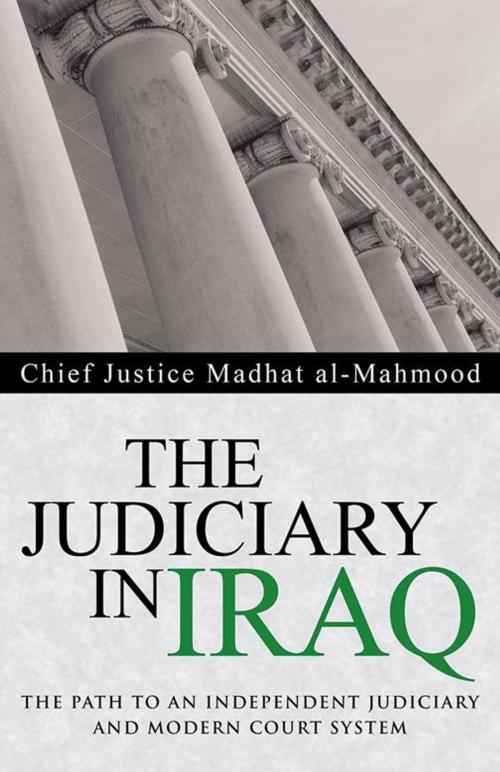The Judiciary in Iraq
The Path to an Independent Judiciary and Modern Court System
Nonfiction, Reference & Language, Law, Courts, Social & Cultural Studies, Political Science, Government| Author: | Chief Justice Madhat al-Mahmood | ISBN: | 9781491731147 |
| Publisher: | iUniverse | Publication: | July 29, 2014 |
| Imprint: | iUniverse | Language: | English |
| Author: | Chief Justice Madhat al-Mahmood |
| ISBN: | 9781491731147 |
| Publisher: | iUniverse |
| Publication: | July 29, 2014 |
| Imprint: | iUniverse |
| Language: | English |
After simmering in the background through the nineties, Iraq burst into the awareness of many when it became a battleground against the war on terror under the Bush administration. Few realize that in the midst of the fierce policy battles, one partially implemented state-building exercise took root, and Iraq became the first country in the Middle East, democracy or otherwise, to have a constitutionally mandated independent judicial branch.
In The Judiciary in Iraq, Madhatal-Mahmood, chief justice of Iraq, examines the many elements contributing to the creation of the first independent judicial branch in the Middle East in 2003, tracing the roots of the Iraqi judicial system from Islamic and Ottoman origins through to the fortuitous opportunity created by the US state-building machinery that so often misfired. Providing guidance for support to the justice sector in Iraq and to new democracies in the region, Chief Justice al-Mahmood draws on his decades of work in both academic and government sector positions to discuss why Iraqi courts were positioned for independence in 2003 and on how the new branch has expanded access to services in spite of challenges.
This study examines the evolution of the judiciary and courts in Iraq, starting from pre-Islamic developments, and then moving through the impact of Ottoman and British rule before considering the role of the judiciary and courts in a modern, stable, and democratic state in the Middle East following US interventions.
After simmering in the background through the nineties, Iraq burst into the awareness of many when it became a battleground against the war on terror under the Bush administration. Few realize that in the midst of the fierce policy battles, one partially implemented state-building exercise took root, and Iraq became the first country in the Middle East, democracy or otherwise, to have a constitutionally mandated independent judicial branch.
In The Judiciary in Iraq, Madhatal-Mahmood, chief justice of Iraq, examines the many elements contributing to the creation of the first independent judicial branch in the Middle East in 2003, tracing the roots of the Iraqi judicial system from Islamic and Ottoman origins through to the fortuitous opportunity created by the US state-building machinery that so often misfired. Providing guidance for support to the justice sector in Iraq and to new democracies in the region, Chief Justice al-Mahmood draws on his decades of work in both academic and government sector positions to discuss why Iraqi courts were positioned for independence in 2003 and on how the new branch has expanded access to services in spite of challenges.
This study examines the evolution of the judiciary and courts in Iraq, starting from pre-Islamic developments, and then moving through the impact of Ottoman and British rule before considering the role of the judiciary and courts in a modern, stable, and democratic state in the Middle East following US interventions.















